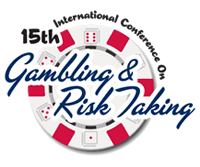Presentation Type
Event
Location
Caesars Palace, Las Vegas Pompeian II
Start Date
31-5-2013 8:30 AM
End Date
31-5-2013 10:00 AM
Disciplines
Gaming and Casino Operations Management | Public Affairs, Public Policy and Public Administration | Sociology
Abstract
Following the public choice literatures which explore the voting process to obtain an economic decision (Morton, 1991; Olson, 1965; Riker and Ordeshook, 1968; Stigler, 1974; etc.), a model is formulated in this paper to reveal the related forces which lead to the legalization/liberalization of casino gaming as a modern economic sector. It is shown that an individual’s decision to participate into a voting process or not is influenced by his/her anticipated benefit and cost. Then, the aggregate force of the beneficiary group and the anti-gaming group in standing for their own economic and emotional interests determines the voting result. Indeed, the arguments as presented in this model are verified by respective evidences as derived from Atlantic City in New Jersey and Taiwan, where sate-wide vote/referendum are adopted to decide the progression of casino gaming.
Included in
Gaming and Casino Operations Management Commons, Public Affairs, Public Policy and Public Administration Commons, Sociology Commons
Session 4-1-B: A public choice perspective on the progression of casino gaming
Caesars Palace, Las Vegas Pompeian II
Following the public choice literatures which explore the voting process to obtain an economic decision (Morton, 1991; Olson, 1965; Riker and Ordeshook, 1968; Stigler, 1974; etc.), a model is formulated in this paper to reveal the related forces which lead to the legalization/liberalization of casino gaming as a modern economic sector. It is shown that an individual’s decision to participate into a voting process or not is influenced by his/her anticipated benefit and cost. Then, the aggregate force of the beneficiary group and the anti-gaming group in standing for their own economic and emotional interests determines the voting result. Indeed, the arguments as presented in this model are verified by respective evidences as derived from Atlantic City in New Jersey and Taiwan, where sate-wide vote/referendum are adopted to decide the progression of casino gaming.


Comments
Moderator: Jonathan Galaviz
Session 4-1-B Gaming Expansion in Asia
File: 35 PowerPoint slides
Attached file: Paper